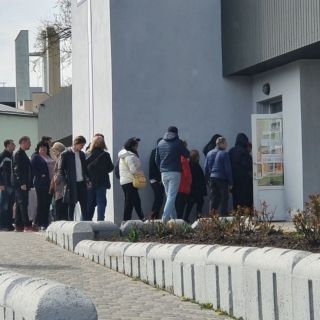
Celebrating Easter - Ukraine Crisis Story
Celebrating Easter in Ukraine was very different this year. In the midst of war and tragedy they had much to be thankful for, so celebrate they did!
Read this from one of our church partners in Ukraine:
Due to the war we had to celebrate the Resurrection of Christ late, because there was a huge threat that Russian soldiers would target churches in Ukraine, because there could be a lot of people coming to the churches and the authorities had forbidden us to hold a service between Saturday at 1:00 pm to Tuesday at 6:00 am.
It was quite unusual, but in this horrible time, the opportunity to celebrate the victory of life over death -- that was astonishing. Christ overcame death and sin and freed [Himself? us?] from the clutches of death. We will be raised to eternal life. Death is defeated, everyone that we have lost will be resurrected and we will be forever with Him in God's Kingdom -- there, where there is no sin, no war, no sickness, no death.
Today we celebrated the victory of life over death. Glory to Jesus Christ for His victory!
1 Cor 15:55-57 "Death, where is your victory? Where, death, is your sting? The sting of death is sin, and the strength of sin is the Law. But thanks to God that He gave us victory through our Lord Jesus Christ."
Because on Saturday a lot of refugees come to us, to our church project, we invited them all to celebrate the Resurrection with us. There were more than 200 adults. So we held two services. Both were full -- more than 400 adults. They heard the Gospel, that Christ died in our place on the Cross and was raised for our justification.
In the time when death is raging in Ukraine, we communicated the meaning of Christ's victory, and that "death is temporary, but life is eternal!"
Although there were two services, a huge vehicle arrived and brought 15 thousand [kilos?] of humanitarian freight. We invited the men to help us unload it. And they came -- more than 30 men. God sent us help. Thanks to all those who labored and those who sent humanitarian aid.
Praise God for wonderful works!
Additional Posts




